We are delighted to host a Q&A with author Marjorie Liu today!
Marjorie Liu is a prolific author of novels and comics and her most recent work is the new brand new comic Monstress, which Ana reviewed – and loved. To celebrate its release, we chatted with the author about the comic, its creation and more.
The Book Smugglers: Thank you so much for chatting with us today, we’ve been huge fans of your work–both comics and prose fiction–and had been waiting on tenterhooks for Monstress ever since it was first announced.
MARJORIE: Thank you!
The Book Smugglers: The official description tells us that Monstress is the story of a teenage girl named Maika who shares a mysterious psychic link with a monster of tremendous power, “a connection that will transform them both, and make them the target of both human and otherworldly powers.” Can you elaborate further on the underlying premise of Monstress and the alternate world you’ve created in this comic?
MARJORIE: With Monstress I was trying to tell a story about what it takes to survive a cataclysmic, dehumanizing war — and then have to put yourself back together again. That’s where we find our heroine, Maika, at the beginning of the series — she’s a survivor, but she’s completely traumatized, broken, unsure of her own sanity. Maika is afraid she’s losing her mind, that she’s becoming a monster — and she’s right. She actually is becoming a monster — because there’s one living inside her. Literally.
The Book Smugglers: We’ve read the first issue of Monstress and absolutely love it. We especially love the way you features female characters in prominent roles, with the main character embarking upon a gruesome quest from the first few pages of the story. Talk to us a bit about female characters in Monstress–will the comic continue to focus on female characters and their agency in further issues?
MARJORIE: Have you ever read a book or seen a movie or television show where there are a ton of guys — and just a handful of women in the cast of characters? That’s so not my book. I very much wanted to reverse those numbers and tell a story where the baseline is a ton of women, and a handful of dudes. There’s no disease that wiped out men, in the same way there’s no disease that wiped out women in all these other forms of entertainment where women don’t seem to exist. Women — women of color — just happen to be the mainstream in Monstress. The fact that this isn’t something we take for granted says a lot about the state of female representation in popular entertainment.
The Book Smugglers: Monstress features gorgeous art by the Japanese artist, Sana Takeda. How has been the collaborative process so far?
MARJORIE: She’s probably one of the most amazing people I’ve ever worked with. Also, the nicest. We first collaborated on X-23, and her pages were some of my favorites in the run — her ability to convey emotion and silence was, and still is, astounding. When I realized there was an opportunity for us to work together, I jumped — and, thankfully, she was willing to take the leap with me.
The Book Smugglers: Do you have an idea of where this overall story is going or how many issues Monstress may have?
MARJORIE: I know how the story ends (more or less, as these things tend to evolve) but I don’t know how many issues it will take to get there. That said, this is a big sprawling epic, so rest assured the book will be around for a while — there’s a lot of ground to cover.
The Book Smugglers: You are both a prolific novelist and comic book writer – what would you say are the advantages and potential pitfalls of writing comics? How does comic writing compare to writing novels? Do you have a preferred medium to work in (and why)?
MARJORIE: I still consider myself a novelist, first and foremost — that’s where I started, and where I feel most comfortable. Writing comics isn’t easy. I love doing it — it offers incredible opportunities in the range of stories I can tell — but it’s not an organic process for me. Fortunately, I’m a very visual writer — that’s the only thing I’ve got going, really. To write a comic book requires strong narrative structure, I’ve got to build a story in pieces that all work together in a way that fully dramatizes my characters, world, and conflict, both visually and through my letters. And I can’t go back and revise. Not once the artist is done. Which means if, a couple issues from now, I realize I made some narrative error — I’m out of luck. I just have to live with it, and make corrections on the fly.
Working on a novel, on the other hand, is a deeply immersive process that allows me to make mistakes — because I can absolutely go back and fix anything, anytime. Even better, I’m building people and worlds with nothing but my words, and that requires a mental and physical investment that sometimes feel like the most amazing out-of-body experience ever. It’s all growing directly from my head to the page, and I love that feeling. I love living in another world.
I do that, too, with comics — but to a lesser degree, because someone else is handling the visuals. It’s like coming up against a wall and knowing you can’t ever cross that barrier.
The Book Smugglers: On a recent interview for GenerAsians’ Spring 2015 issue you talk about being the only woman of color currently writing comics at Marvel. Was that part of the impetus to start your own comic with Sana Takeda?
MARJORIE: I hate to make absolute statements — I think I’m the only woman of color writing at Marvel, but that could change, or might have already changed. I hope so. I said recently in an interview that there’s a difference between the optics of change and actual structural diversity. Optics are fine — like, when Thor becomes a woman, or Captain America is black — we need that kind of representation. But optics don’t last without actual diversity behind the scenes: editors and creators, for example. The wonderful Ms. Marvel, written by G. Willow Wilson, was created because editor Sana Amanat, a woman of color, really pushed for it. To date, it’s probably one of the few positive representations of Muslims in American pop culture. That’s how structural diversity makes real change.
And yes, creating Monstress with another Asian woman was incredibly important to me.
The Book Smugglers: Finally, a bit of fun in five questions!
A favorite comic?
MARJORIE: I recently read “Supermutant Magic Academy” by Jillian Tamaki, and I think it’s amazing. It’s a former webcomic about the lives of…well, supermutant magical teens at a special high school. Irreverent, smart — I couldn’t put it down.
A favorite Urban Fantasy novel?
MARJORIE: I don’t know if Malinda Lo’s YA novels count as urban fantasies, but I really enjoy her work. I also love Seanan McGuire’s InCryptid series, which are hilarious and heart-warming, and deeply fun — and you can never go wrong with Samuel R. Delaney, Nalo Hopkinson, Justine Larbalestier, or Meljean Brook (just to name a few).
A favorite female character?
MARJORIE: Lilith, from Octavia Butler’s “Dawn”. She wakes up in a strange world, captive, forced to adapt, survive, make impossible choices — and never stops fighting for herself, never stops seeking ways to regain her power and agency.
A favorite monstress?
MARJORIE: I love this question. In my mind, “monstress” means a woman who is badass, powerful, brilliant, brave, fierce, awesome, amazing. And I’ve got a lot of favorite women — whether they’re family, favorite authors, scientists and artists, figures out of history, literature, film. Hazel Ying Lee, for example, was totally awesome — the first Chinese-American pilot who flew for the US Army in WWII; or Malala Youzafzai, the teen activist who was shot in the head by the Taliban, and has gone on to fight for female education. And don’t forget Sojourner Truth, former slave who was one of the greatest abolitionists and thinkers of all time. These are just three names out of millions upon billions, an endless line of women who changed the world, who still change the world, every day: mothers, sisters, friends.
The Book Smugglers: And finally, a question we ask all of our interviewees: We Book Smugglers have faced condemnation because of the sheer volume of books that we carry back home on a daily basis. As such, we have on occasion resorted to “smuggling books” home to escape judgmental, scrutinizing eyes. Have you ever had to smuggle books?
MARJORIE: Yes, I have. In fact, I did that just two nights ago. I have an addiction!
New York Times bestselling and award-winning writer Marjorie Liu is best known for her fiction and comic books. She teaches comic book writing at MIT, and she leads a class on Popular Fiction at the Voices of Our Nation (VONA) workshop.
Ms. Liu is a highly celebrated comic book writer. Her extensive work with Marvel includes the bestselling Dark Wolverine series, NYX: No Way Home, X-23, and Black Widow: The Name of the Rose. She received national media attention for Astonishing X-Men, which featured the gay wedding of X-Man Northstar and was subsequently nominated for a GLAAD Media Award for outstanding media images of the lesbian, gay, bisexual and transgender community. Ms. Liu also wrote the story for the animated film, Avengers Confidential: Black Widow and Punisher, which was produced by Marvel, Sony Pictures Entertainment (Japan) Inc., and Madhouse Inc.
Her newest work is MONSTRESS, an original, creator-owned comic book series with Japanese artist (and X-23 collaborator) Sana Takeda. Published by Image in Fall 2015, MONSTRESS is set in an alternate, matriarchal 1920’s Asia and follows a girl’s struggle to survive the trauma of war. With a cast of girls and monsters and set against a richly imagined aesthetic of art deco-inflected steam punk, MONSTRESS #1 debuted to critical praise. The Hollywood Reporter remarked that the longer than typical first issue was “world-building on a scale rare in mainstream comics.”
Ms. Liu is also the author of more than 19 novels, most notably the urban fantasy series, Hunter Kiss, and the paranormal romance series, Dirk & Steele. Her novels have also been bestsellers on USA Today, which described Liu “as imaginative as she is prolific.” Her critically praised fiction has twice received the Romantic Times Reviewers’ Choice Award, for THE MORTAL BONE (Hunter Kiss #6), and TIGER EYE (Dirk & Steele #1). TIGER EYE was the basis for a bestselling paranormal romance video game called Tiger Eye: Curse of the Riddle Box.
Liu has appeared on MSNBC, CNN, MTV, and been profiled in the Wall Street Journal.com, Hollywood Reporter, and USA Today. She is a frequent lecturer and guest speaker, appearing on panels at San Diego Comic Con, the Tokyo Literary Festival, the New York Times Public Lecture series, Geeks Out; and the Asian American Writers Workshop. Her work has been published internationally, including Germany, France, Japan, Poland, and the United Kingdom.
Ms. Liu was born in Philadelphia, and has lived in numerous cities in the Midwest and Beijing. Prior to writing full-time, she was a lawyer. She currently resides in Boston.

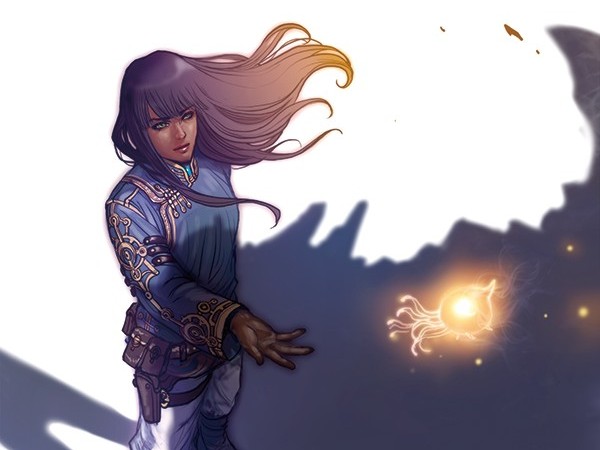
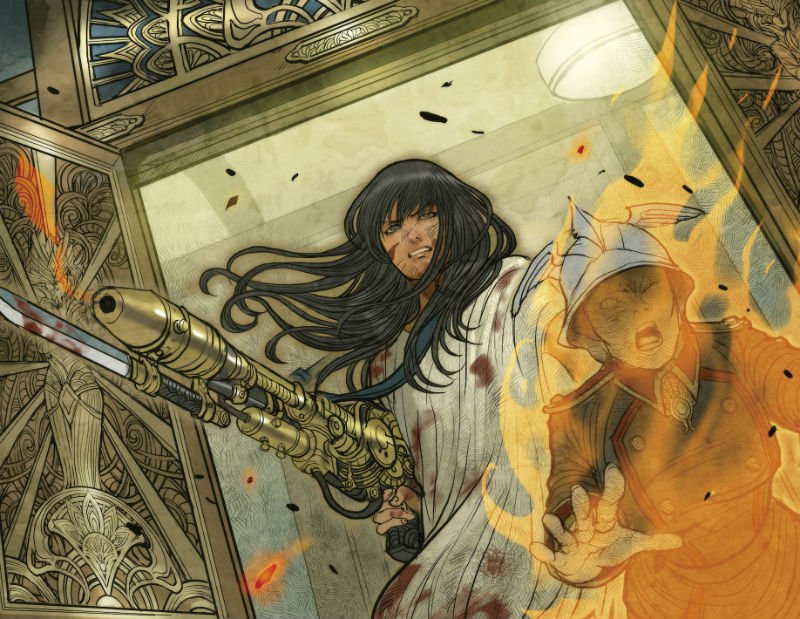
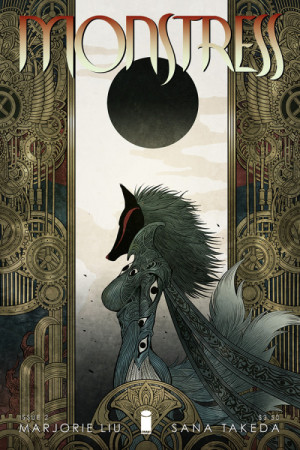
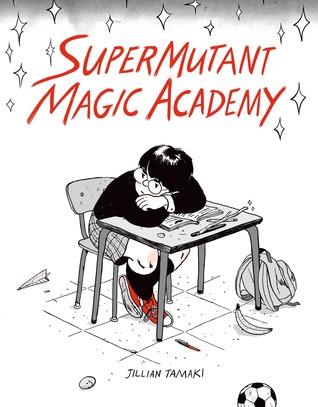
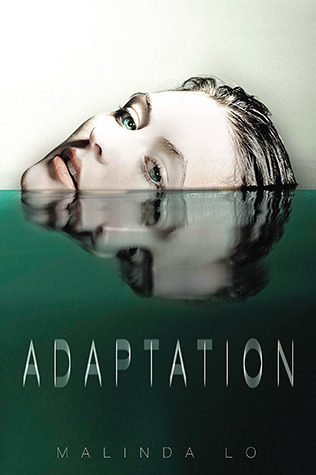
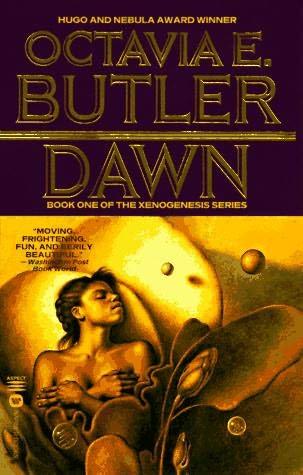
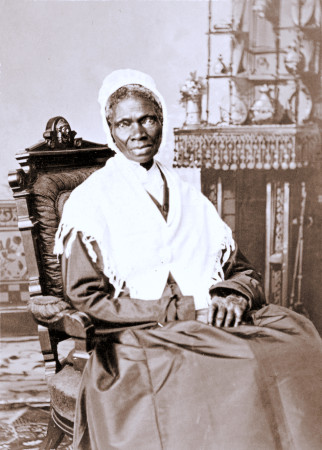










3 Comments
Did you try Bet me by jennifer
November 20, 2015 at 8:11 amFinally good to see you interviewing Marjorie.. Keep up the good work couple..
Sunday Post: November 22 | Book Minx Reads
November 22, 2015 at 11:36 am[…] Q & A with Marjorie Liu, author of the new comic Monstress (via The Book Smugglers) […]
Fangirl Happy Hour, Episode #47, “Tiger Blowjobs” | Fangirl Happy Hour
June 24, 2016 at 2:04 am[…] Monstress Vol. 1 by Marjorie Liu & Sana Takeda Dirk & Steele series by Marjorie M. Liu Black Widow: The Name of the Rose by Marjorie M. Liu & Daniel Acuña A Chat With Marjorie Liu – About Monstress […]